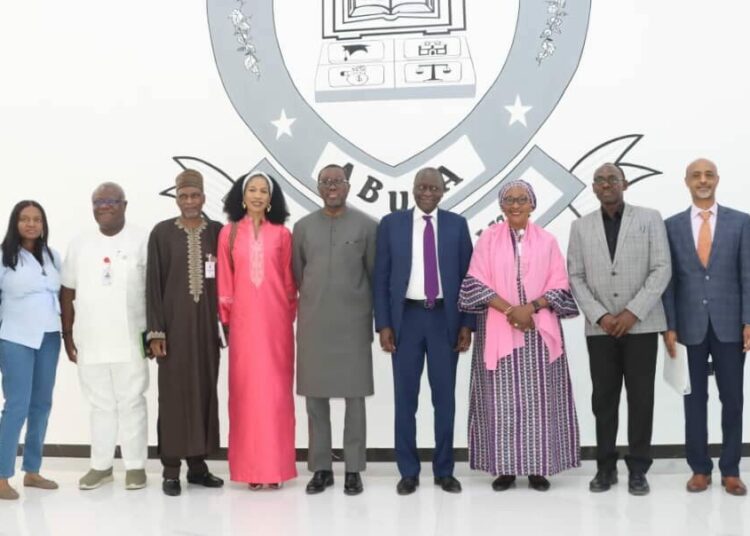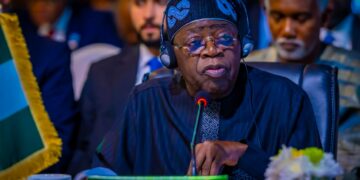The Vice President for Western and Central Africa at the World Bank, Ousmane Diagana, on Monday, paid a high-profile visit to Baze University, Abuja, where he hailed the institution’s commitment to academic excellence and innovation.
He also assured the university leadership of potential partnerships in critical development sectors.
Diagana, who is on an official visit to Nigeria, described Baze University as “a shining example of African excellence driven by Africans,” commending the vision and leadership of the founder and chancellor, Senator Yusuf Datti Baba-Ahmed.
“I am happy to see a university of this standard built and led by Africans. This is really a thing of joy,” he said during the visit. “We are proud of Baze University and the role institutions like this play in human and capital development.”
He emphasised the World Bank’s development priorities, which include youth empowerment, private sector growth, agricultural productivity, and people-focused initiatives. Diagana also interacted with students, reiterating the Bank’s belief that “every concept of development begins with learning.”
In his remarks, Senator Yusuf Datti Baba-Ahmed expressed gratitude to the World Bank delegation, and highlighted the institution’s historical significance in shaping global economic systems, especially in the Global South.
“After the Second World War, the world witnessed a transformation in global financial and development architecture. Institutions like the World Bank have been instrumental in trade liberalization, financial autonomy, and capital proliferation,” he said.
He called for deeper collaboration between international financial institutions and sovereign states, particularly in strengthening accountability and long-term national development frameworks.
The Chancellor also spotlighted the university’s achievements, revealing that in 2019, 30 out of 31 Baze students who studied in the UK returned with distinctions. He unveiled plans for a flying school offering aviation management, air traffic control, and hospitality training.
“Baze University represents diversity, religious harmony, technological advancement, and academic integrity,” he added. “Even during the COVID-19 lockdown, our academic calendar continued without disruption.”
For her part, the university’s Vice Chancellor, Professor Jamila Shu’ara, praised the World Bank for recognising Baze University’s contributions to development, describing the institution as a “university of tomorrow in today.”
“All our processes are technology-driven. From student admissions to staff management, we use smartboards in every classroom, and we’re fully accredited by nine professional bodies,” she noted.
She added that the institution currently hosts 6,985 students, has graduated over 3,400 alumni, employs 920 staff members, and maintains 150 trained security operatives on campus.
The event concluded with an interactive session between students, faculty, and the World Bank team, exploring themes of development, education, youth engagement, and global policy reform.
Diagana was accompanied by the World Bank Country Director for Nigeria, Mr. Ndiamé Diop; Regional Practice Director, Dr. Abebe Adugna; Manager for External and Corporate Relations (Western and Central Africa), Ms. Naye Anna Bathily; Senior External Affairs Officer, Mr. Mansir Nasir; and External Affairs Officer, Ms. Maryam Laushi Dasilva.





